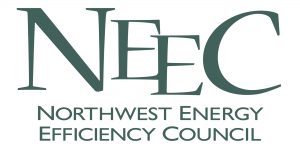The City of Seattle’s energy performance disclosure ordinance for non-residential and multi-family buildings had its first deadline on October 3rd. All non-residential buildings greater than 50,000 square feet were required to complete an ENERGY STAR Portfolio Manager account for the building which establishes an energy use index (kBTU/sf/yr) and in most cases a benchmark score. This data is reported to the City’s Department of Planning and Development and is required to be disclosed to any prospective buyer, lender, or lessee of the property. Details on the compliance rate with the deadline are not yet available. (For coverage of national trends in energy performance disclosure visit, Click Here).
Phase 2 of Seattle’s ordinance covers disclosure of non-residential buildings greater than 10,000 square feet and all multi-family properties five units and greater. While the Phase 1 deadline affected approximately 800 buildings in the City, Phase 2 covers over 8,000 separate properties. The disclosure deadline for Phase 2 is April 1, 2012. In anticipation of the need for assistance with benchmarking, NEEC has developed a list of members who provide those services and is publishing the list on the NEEC web site. Members who aren’t yet on the list and would like to be added should contact Russell Paez ([email protected])
The State of Washington has a similar energy performance disclosure requirement statewide for non-residential buildings (disclosure is required to prospective buyers, lenders, or lessees), however, compliance with the statewide statute appears to be weak. The key difference seems to be the City of Seattle’s additional requirement that the performance get annually reported to the City. At the state level, no specific department is charged with oversight (notable exception is for state buildings where General Administration has provided support and enforcement) and most importantly, no public outreach campaign has been implemented to let buyers and tenants know that they can ask. There is good evidence that energy performance information helps spur investment in improving efficiency and NEEC is supporting changes to the state statute that will increase motivation for building owners to comply.
